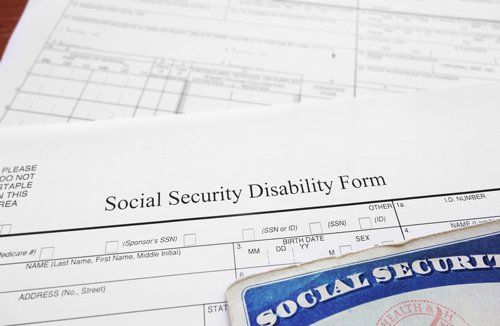
When it comes to the topic of Social Security benefits, it is easy to become confused on which type of benefit you qualify for. The Social Security Administration provides two separate types of disability benefits that serve two different groups of people.
These benefits include Social Security Disability Insurance (SSDI) and Supplemental Security Income (SSI). While both types of benefits provide a source of income to those who no longer work, they differ in eligibility requirements.
SSDI is provided to those who have paid into the government program over years of working. The payouts are used when they are no longer able to work due to a disability.
SSI is meant for members of the low-income population who need the benefits as a source of income but do not qualify for SSDI. It is designed for those who have not worked a job long enough to pay into the system but need an extra boost to make ends meet due to a physical or mental disability.
The following overview of both SSDI and SSI will help you determine which one you qualify for.
These benefits include Social Security Disability Insurance (SSDI) and Supplemental Security Income (SSI). While both types of benefits provide a source of income to those who no longer work, they differ in eligibility requirements.
SSDI is provided to those who have paid into the government program over years of working. The payouts are used when they are no longer able to work due to a disability.
SSI is meant for members of the low-income population who need the benefits as a source of income but do not qualify for SSDI. It is designed for those who have not worked a job long enough to pay into the system but need an extra boost to make ends meet due to a physical or mental disability.
The following overview of both SSDI and SSI will help you determine which one you qualify for.
Social Security Disability Insurance Overview
The money used to pay out SSDI benefits is generated by employers, employees and those who are self-employed. The only people who may receive these benefits are those who have earned credit based on their own payroll tax contributions.
In order to get these benefits, you have to have earned at minimum 20 quarters of coverage within the last ten years. The maximum number of credits you can earn each year is four. SSDI benefits are paid to those who are disabled. They are also provided to the children and surviving spouse upon the death of the recipient.
The payout amount is based on how much you have contributed to Social Security over the years. If you had a high salary, your monthly SSDI benefits will reflect that amount.
There is a waiting period for SSDI, typically several months. This gives the SSA time to dissect your information and ensure that the disability will cause a long-term absence from work. The benefits are not paid out during this waiting period.
In order to get these benefits, you have to have earned at minimum 20 quarters of coverage within the last ten years. The maximum number of credits you can earn each year is four. SSDI benefits are paid to those who are disabled. They are also provided to the children and surviving spouse upon the death of the recipient.
The payout amount is based on how much you have contributed to Social Security over the years. If you had a high salary, your monthly SSDI benefits will reflect that amount.
There is a waiting period for SSDI, typically several months. This gives the SSA time to dissect your information and ensure that the disability will cause a long-term absence from work. The benefits are not paid out during this waiting period.
Supplemental Security Income Overview
SSI is funded through taxes collected from all taxpayers in the United States. It is not based on any form of work history. Rather, these benefits are meant for those who did not make enough money through working to be eligible for SSDI.
SSI payments are made to disabled adults or to those who are over the age of 66. They can also be made to children who are disabled or blind. The amount of each payment will be based on the income of the individuals who apply. In some states, it is possible that this amount can be supplemented if the federal benefit rate limit has been met.
To determine whether or not an applicant qualifies for SSI, the SSA will take a look at the applicant's financial circumstances and resources, including cash, land, vehicles and other property.
If the applicant has a significant amount of resources, regardless if they are liquid or not, the likelihood of qualifying for SSI is low. Applicants with little or no resources, on the other hand, will have a good chance of being approved for SSI benefits.
One thing to remember is that the SSA has some of the strictest rules of any federal agency. It can be a difficult area to navigate on your own. If you find yourself confused by the process, in need of guidance on what information you will need in order to apply or if you have been denied benefits that you feel you are entitled to, please contact the experts at Milam Law for assistance.
SSI payments are made to disabled adults or to those who are over the age of 66. They can also be made to children who are disabled or blind. The amount of each payment will be based on the income of the individuals who apply. In some states, it is possible that this amount can be supplemented if the federal benefit rate limit has been met.
To determine whether or not an applicant qualifies for SSI, the SSA will take a look at the applicant's financial circumstances and resources, including cash, land, vehicles and other property.
If the applicant has a significant amount of resources, regardless if they are liquid or not, the likelihood of qualifying for SSI is low. Applicants with little or no resources, on the other hand, will have a good chance of being approved for SSI benefits.
One thing to remember is that the SSA has some of the strictest rules of any federal agency. It can be a difficult area to navigate on your own. If you find yourself confused by the process, in need of guidance on what information you will need in order to apply or if you have been denied benefits that you feel you are entitled to, please contact the experts at Milam Law for assistance.






